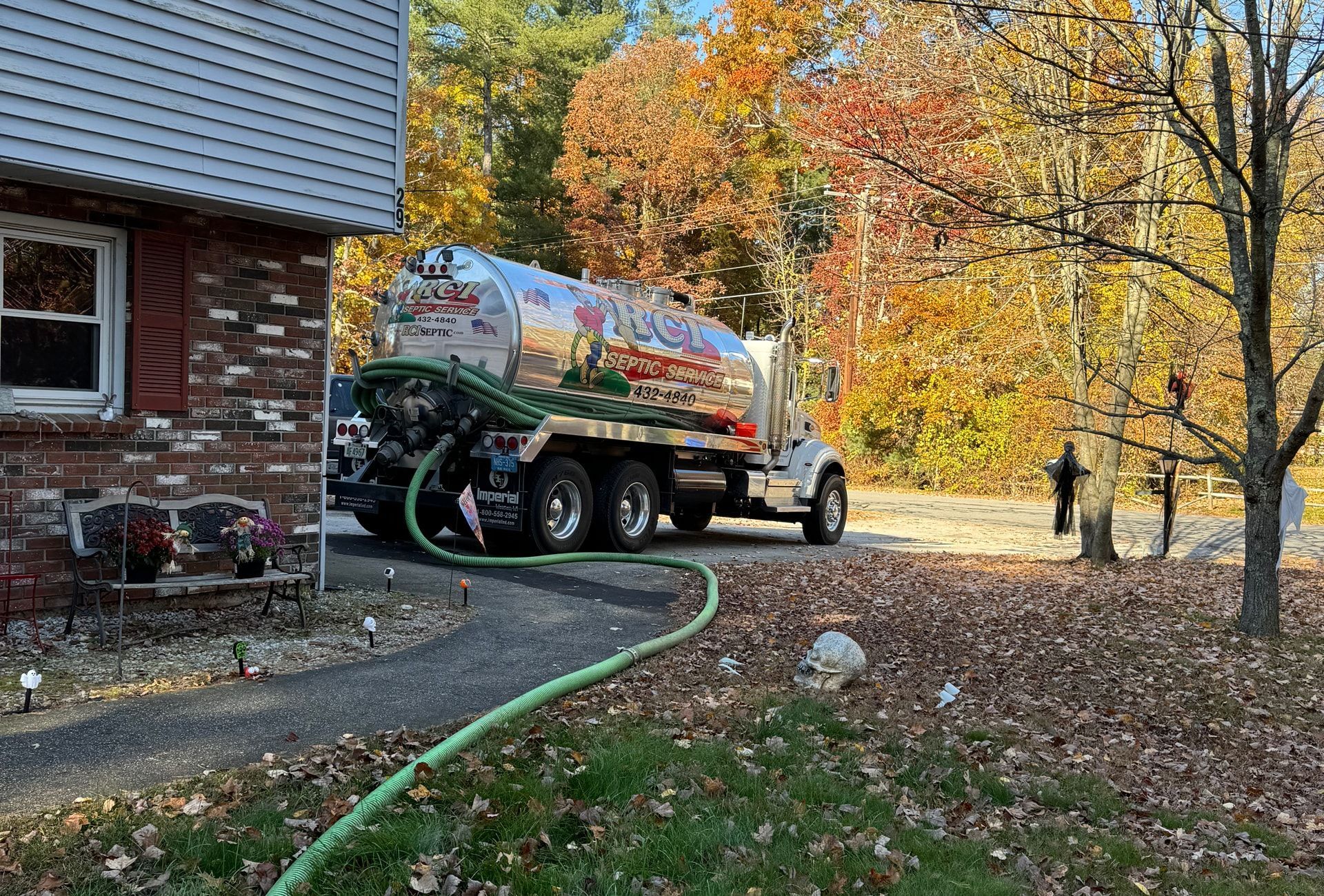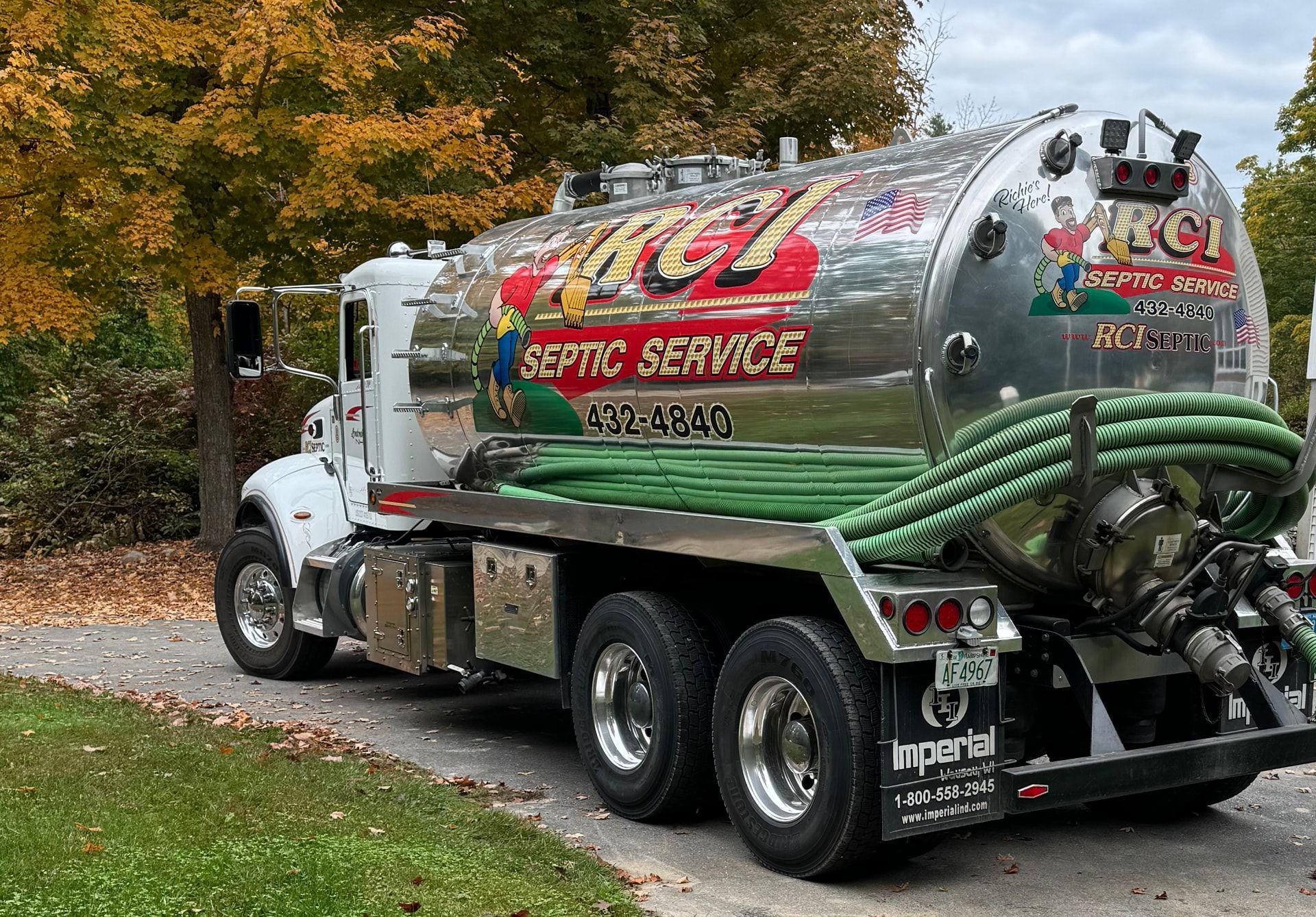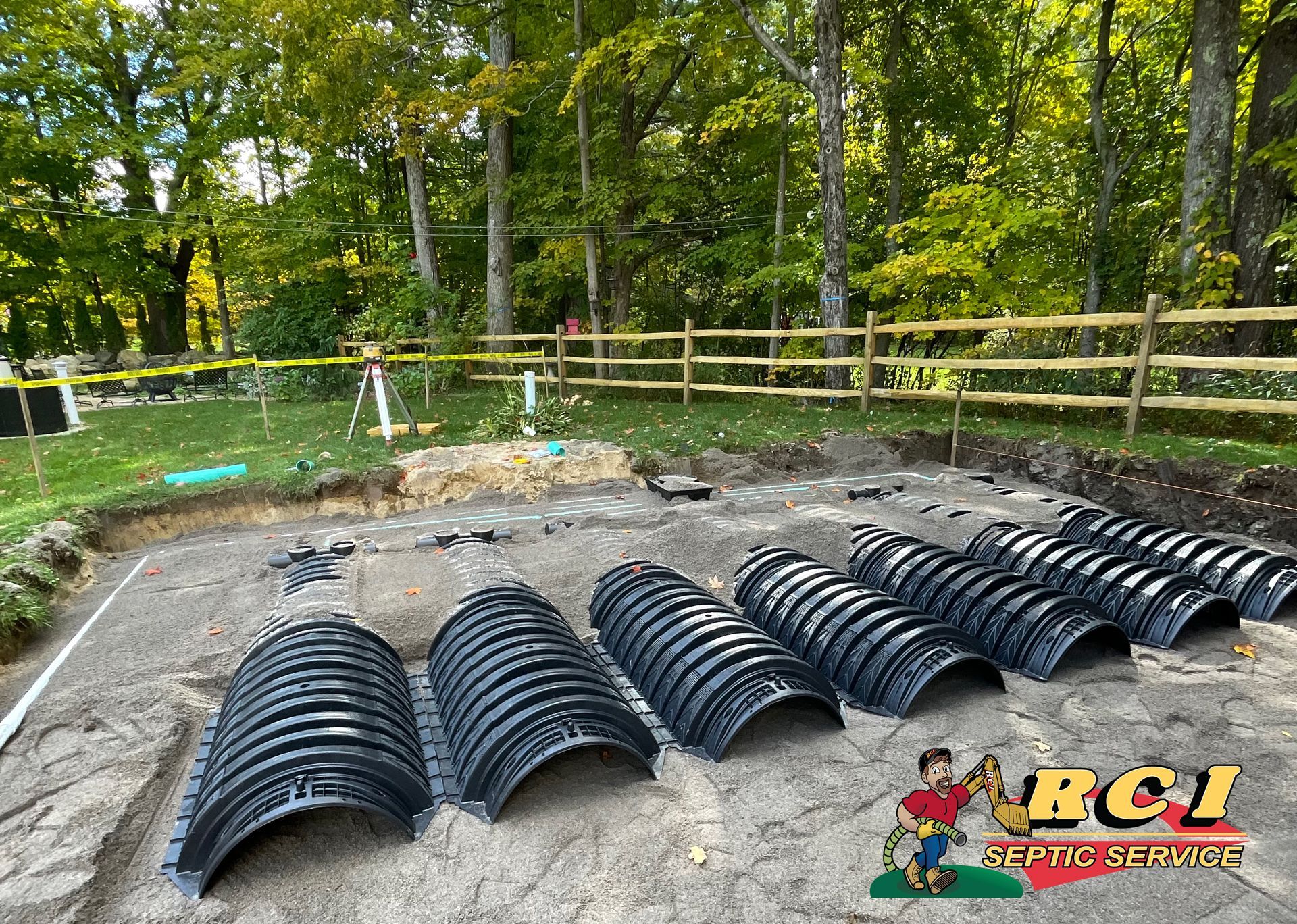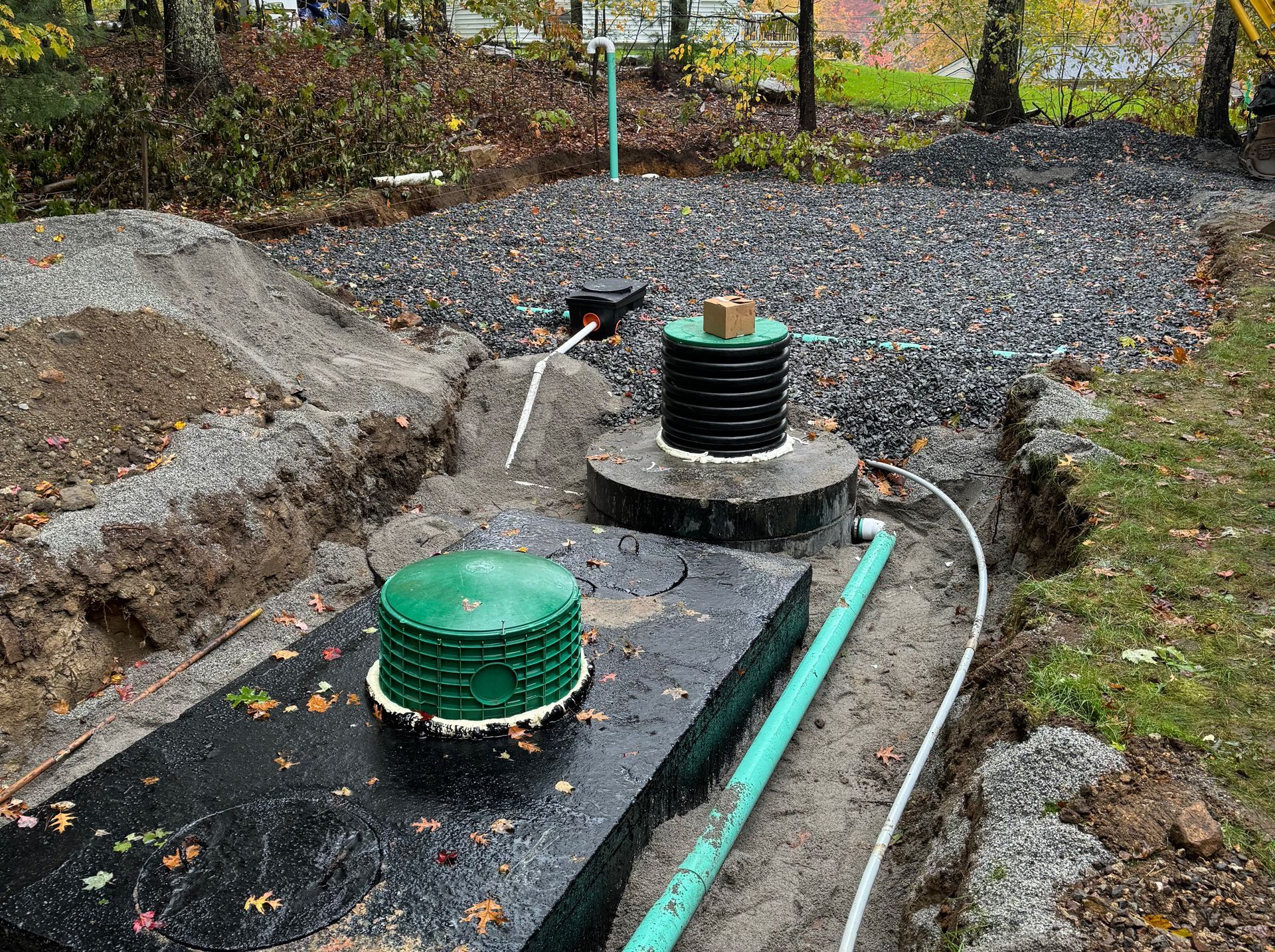Effective Septic System Care During Heavy Rains and Flooding
Worried about your septic system care during heavy rains and flooding? This guide covers everything you need to know to keep your septic system functioning properly. Find out how to prepare, what to do during heavy rains, and how to manage any issues afterward.
Key Takeaways
- Monitor for signs of septic strain, such as gurgling sounds and slow drains, especially during heavy rains.
- Prepare your septic system by conducting regular inspections and maintenance, and minimize water usage when heavy rainfall is expected.
- Post-flood, ensure a professional inspects your septic system before use, as floodwaters can cause contamination and structural damage.
Recognizing the Signs of Septic System Strain During Heavy Rains

When heavy rains strike, your septic system can experience significant stress, leading to performance issues that may not be immediately noticeable. Imagine flushing the toilet only to hear gurgling sounds or finding that your slow drains are slower than usual. These are clear signs that your septic system is struggling to manage the excess water.
Standing water around your septic tank or drain field is another red flag. It indicates that the system is having trouble dispersing septic waste, potentially leading to a flooded drain field. Additionally, be on the lookout for unpleasant odors emanating from your household drains or septic area. These odors are not just a nuisance; they signal that surfacing sewage is not being treated properly and could pose a health risk.
Keep an eye out for these warning signs during heavy rainfall. Ignoring them can lead to serious problems, including untreated wastewater surfacing in your yard or home. Vigilance can help you address minor issues before they escalate into major disasters.
Preparing Your Septic System Before Heavy Rainfall

Readying your septic system for heavy rainfall requires regular maintenance, including inspections and pumping every one to three years. These routine checks assess the tank’s readiness and identify potential issues that severe weather could worsen.
Diverting stormwater runoff away from your septic system is highly effective. This helps prevent the saturated soil around the drain field from becoming oversaturated, reducing the risk of system failure. Enhancing drainage and maintaining shorter vegetation around the drain fields can also improve water absorption and prevent stagnation.
Proactive maintenance includes replacing older toilets with high-efficiency models to significantly reduce water usage, preventing your tank from overfilling during heavy rain. These steps help minimize the risk of septic system damage during storms.
Actions to Take When Heavy Rain is Forecasted
When heavy rain is forecasted, act swiftly by limiting water usage which will reduce the load on your septic system.
Make sure all electrical connections in your septic system are waterproof to prevent hazards during flooding. If backup is a risk, turn off the electricity to avoid damage or shock. Using a wet/dry shop vacuum can also help manage any overflow.
These precautionary measures protect both your septic system and your safety during severe weather. Being prepared and acting quickly can safeguard your home and prevent costly repairs.
Managing Septic System Use During Heavy Rains
During heavy rains, managing septic system use is crucial. Minimize water use by taking shorter showers or opting for sponge baths. Avoid running appliances like washing machines and dishwashers, which discharge large volumes of wastewater.
Limit toilet flushes to essential use to prevent septic system backs, especially when the soil around the drain field is saturated. Using water-efficient appliances can also help limit water usage and ease pressure on your septic system during heavy rainfall.
Adopting these practices can prevent septic system overloads and keep your household functional and safe during severe weather.
Post-Flood Septic System Care
Once the storm passes and floodwaters recede, your septic system needs attention. Start with a thorough inspection to assess potential damage and ensure all components are secure, crucial for safe operation and preventing further issues.
Avoid contact with flood water due to contamination risks from septic overflow. Do not use the septic system until a professional inspects it for safety. Also, wait until soil water levels drop to prevent further damage.
Delay septic tank pumped until water levels normalize, as pumping too soon can cause structural damage or collapse. Once the soil dries, pressure relief on the system can help prevent sewage backups.
Preventive Measures for Future Storms

Preventive measures are crucial for your septic system. Diverting stormwater runoff from the septic tank and drain field is simple but effective. Regular maintenance, including tank cleaning with a visual inspection every one to three years, can prevent system overload during severe weather.
Regular maintenance and timely repairs can reduce the risk of septic system failures during storms. These proactive steps help avoid costly emergency repairs and ensure your system remains functional and efficient.
Regular inspections and maintenance extend the life of your septic system. Investing in routine care helps avoid future problems and ensures your system is always prepared for severe weather.
Professional Services for Septic System Emergencies
Professional services are indispensable for septic system emergencies. After heavy rains, professional cleaning and restoration may be needed to return the septic system to proper functioning. These services can identify and address flood damage.
If you experience backups or suspect malfunctions, call a professional for inspection and repairs immediately. Professionals should handle cleaning septic tanks contaminated by floodwater to ensure safety and effectiveness.
For assistance, reach out to RCI Septic Service. With over 25 years of experience, they provide comprehensive septic maintenance, pump-out, and emergency repair services to ensure your system runs smoothly. Visit https://www.rciseptic.com to learn more about their services.
Summary
Taking care of your septic system during heavy rains and flooding is crucial to avoid costly repairs and health hazards. By recognizing the signs of strain, preparing for heavy rainfall, managing system use during storms, and following post-flood care steps, you can keep your septic system in top shape. Remember, regular maintenance and professional services are key to ensuring your system’s longevity and efficiency. Stay proactive, stay prepared, and protect your home with these expert tips from RCI Septic Service.
Frequently Asked Questions
What are the signs of septic system strain during heavy rains?
Signs of septic system strain during heavy rains include slow drainage, unusual sounds from toilets, standing water around the septic area, and unpleasant odors from household drains. Taking note of these symptoms is crucial for addressing potential issues promptly.
How should I prepare my septic system before heavy rainfall?
To prepare your septic system for heavy rainfall, focus on regular maintenance, redirect stormwater runoff, and enhance drainage around the septic area. Taking these steps can help prevent overflow and potential system failure.
What should I do when heavy rain is forecasted?
When heavy rain is forecasted, limit water usage and ensure that all electrical connections are waterproof to prevent hazards. Taking these precautionary measures will help safeguard your property during severe weather.
How do I manage septic system use during heavy rains?
To effectively manage septic system use during heavy rains, minimize water usage by avoiding running appliances and limiting toilet flushing to essential needs only. This helps prevent system overload and potential backups.
What steps should I take for post-flood septic system care?
It is crucial to conduct a thorough inspection of your septic system and avoid using it until the inspection is completed. Additionally, wait to pump the system until water levels have normalized.


